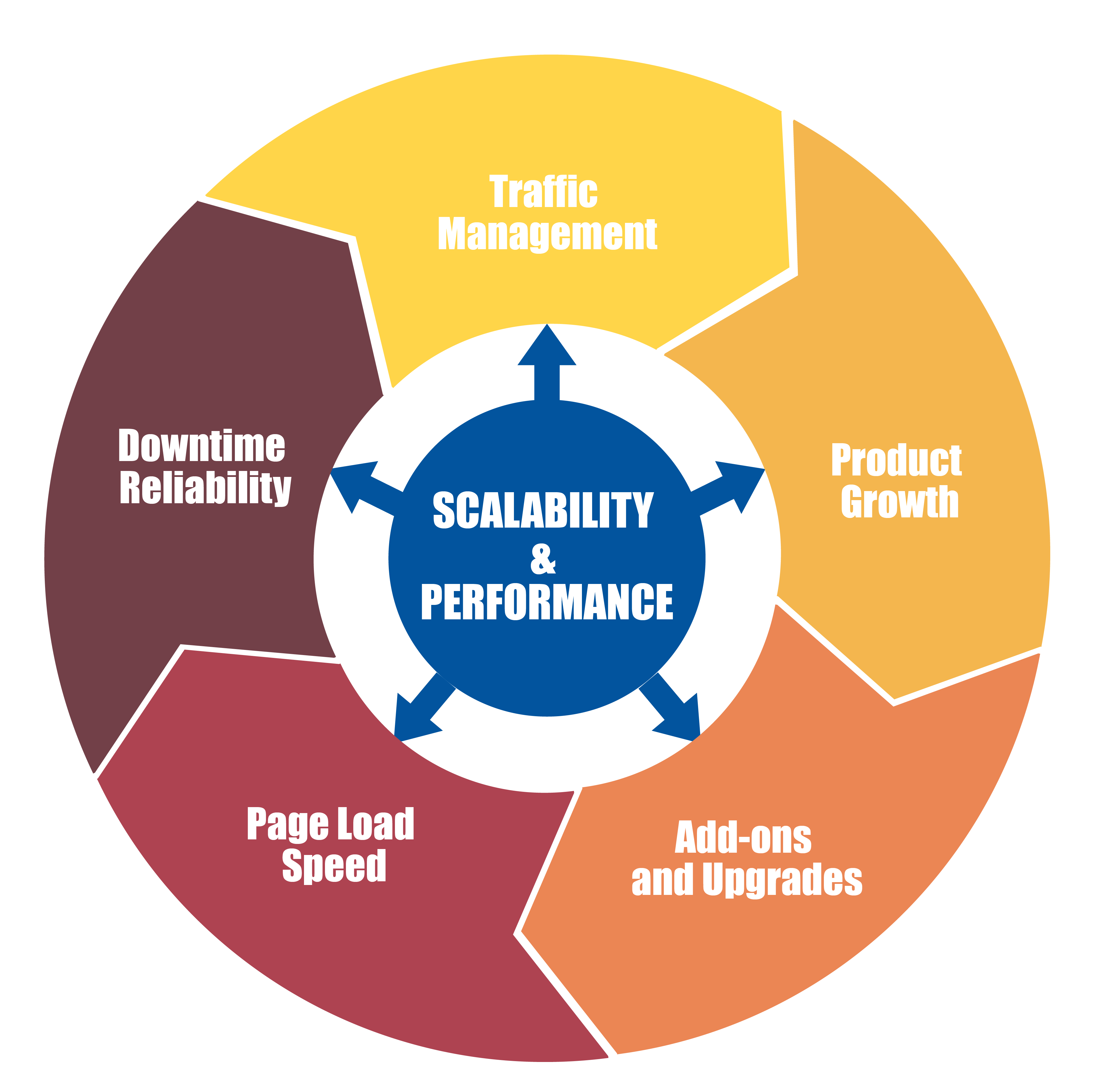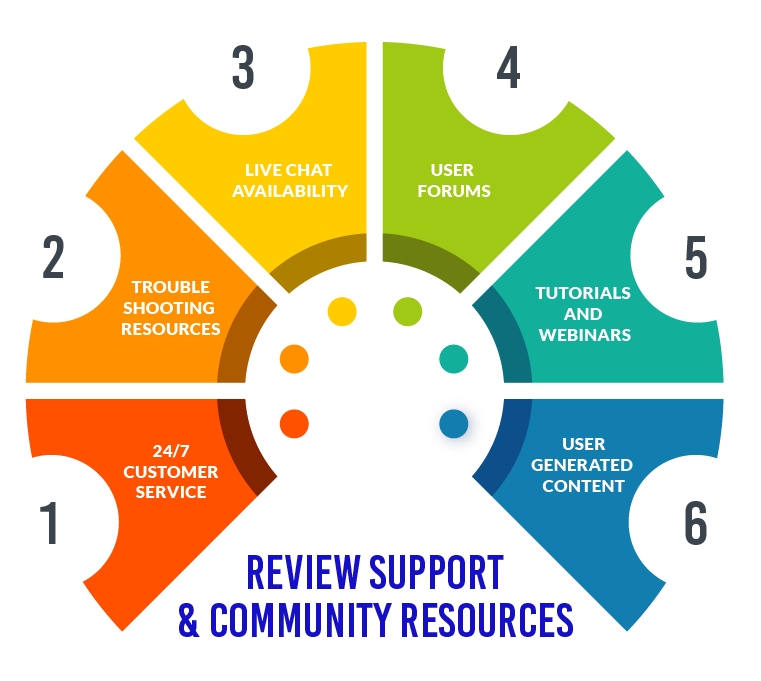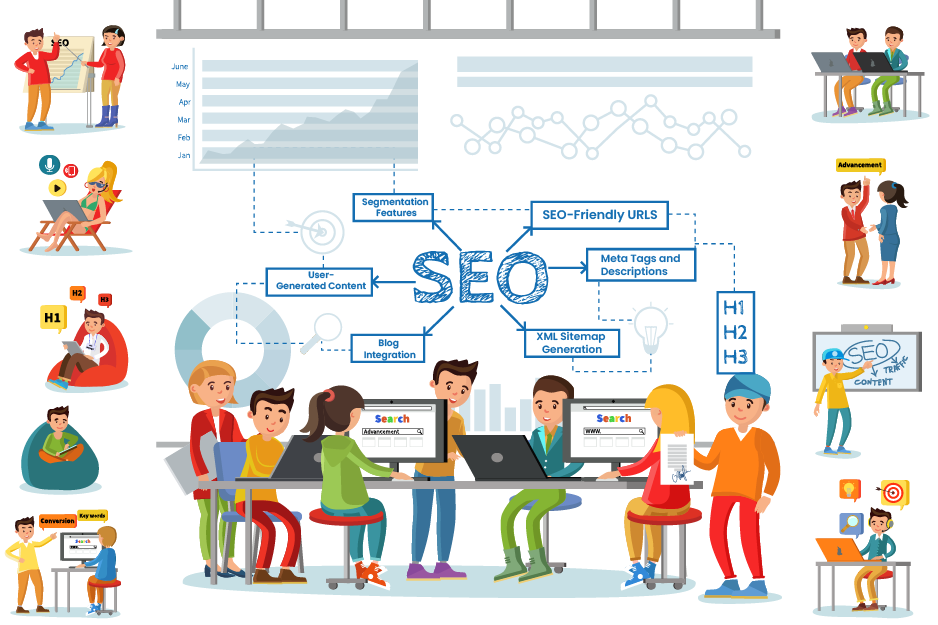In the dynamic realm of eCommerce, choosing the right platform can feel akin to navigating an intricate maze while blindfolded—exciting yet utterly overwhelming. With the landscape of eCommerce Websites Development evolving rapidly, it’s crucial to align your unique business needs with the perfect platform that serves as the backbone of your online store.
You might be asking yourself, "How do I sift through these options without losing my sanity?" Worry not! In this digital age, eCommerce website design isn’t just about flashy buttons and pretty pictures; it’s about driving sales and creating seamless customer experiences that keep buyers coming back for more.
The first step in this quest is understanding your business's unique requirements. Are you a small startup looking for cost-effective solutions, or a well-established brand seeking scalable online shop solutions? Here are some factors to consider:
Your shopping cart is essentially the digital equivalent of a physical shopping basket. It needs to be intuitive, straightforward, and secure. Investing in shopping cart development can enhance user trust and reduce cart abandonment rates. Think about features like:
The key takeaway? The right platform doesn't just empower your operations; it amplifies your potential for success in the ever-competitive digital marketplace. As you embark on this journey of online store development, keep these essential elements at the forefront of your decision-making process.
Before diving headfirst into the vast ocean of eCommerce platforms, it’s vital to take a moment and reflect on your specific business requirements. Think of this as preparing for a road trip; you wouldn’t set out without a map (or GPS!), right? Similarly, understanding your unique needs will help steer you toward the most suitable choices.
The type of products or services you offer significantly influences your platform choice. Ask yourself:
Understanding your audience is akin to knowing what toppings to put on your pizza—everyone has their preferences! Identify who you’re selling to. Consider:
Your budget plays a pivotal role in determining which eCommerce platform aligns with your goals. Consider costs such as:
Your business won’t be stagnant; it will grow and evolve. Therefore, scalability should be at the forefront of your decision-making process. Ask yourself these questions:

The right eCommerce platform will not only meet your current needs but also adapt as you expand. So take a deep breath and assess what truly matters for your business's success. Remember that every great online store began with a clear understanding of its unique requirements!
Your adventure into the digital marketplace doesn’t have to be overwhelming! By pinpointing these elements ahead of time, you're setting yourself up for success in the world of eCommerce website development.
When it comes to eCommerce website development, one size definitely does not fit all. Think of your eCommerce platform as the wardrobe for your online store—while off-the-rack outfits may serve a purpose, tailored designs provide that perfect fit that showcases your unique brand identity. This is where customization and flexibility come into play.

Have you ever walked into a store where every item seemed handpicked just for you? That’s the vibe you want to create online! A customizable platform allows you to:
Let’s face it: the digital landscape changes faster than you can say “checkout.” A flexible platform means you're not tied down when trends shift or new technologies emerge. Here’s what flexibility can offer:
You might find yourself asking, "What should I look for in terms of customization?" Here’s a handy checklist:
You may be tempted by lower-cost options, but keep in mind that limited customization often leads to wasted time and resources down the line. Investing in robust customization options might save you from future headaches—like rebranding efforts because you chose a platform that ultimately didn’t align with your vision!
Your eCommerce journey is uniquely yours; make sure your chosen platform lets you express that individuality through effective customization and flexibility!
In conclusion, when evaluating an eCommerce platform, consider not just how it meets today’s needs but how adaptable it is for tomorrow's possibilities. After all, even the most dazzling online storefront will falter if it cannot evolve along with its customers’ expectations!
This thoughtful approach will ensure you're not just building an online store; you're creating an engaging experience that keeps customers coming back for more!
When it comes to selecting the ideal eCommerce platform, diving into the ocean of features and plugins can feel like a treasure hunt—exciting yet somewhat daunting. Each platform comes with its own unique set of tools that can amplify your eCommerce website development efforts and enhance user experience. So, what should you be looking for?
Think of features as the Swiss Army knife of your online store—they should be versatile enough to tackle various challenges. Here are some essential features to prioritize:
Plugins are like sprinkles on a cupcake—they add that extra flair! They enable you to customize functionalities without reinventing the wheel every time. Here’s what to consider when evaluating plugin options:
A robust analytics feature is like having a crystal ball at your disposal. It allows you to track customer behavior, sales trends, and overall performance metrics. Key analytics capabilities include:
You may find yourself wishing for specific functionalities tailored to your business. In this case, look for platforms offering extensive customization options through plugins or custom coding capabilities. For example:

The right mix of features and plugins will not only streamline operations but also create an engaging shopping experience for your customers!
Your focus should remain on flexibility—a platform that easily accommodates new features as trends evolve will keep you ahead of competitors in this fast-paced digital landscape. As you explore different platforms’ offerings, remember: each feature or plugin should align with enhancing user experience and driving sales!
Your journey into effective eCommerce website development doesn’t have to be a solitary adventure; leverage these insights to make informed choices that resonate with both your brand vision and customer expectations!
In the fast-paced world of online retail, scalability and performance are not just buzzwords; they're your business's lifeline. Imagine gearing up for the holiday season, only to find that your platform crashes under increased traffic. Talk about a nightmare! Choosing an eCommerce platform that can handle fluctuations in demand is crucial for ensuring seamless shopping experiences for your customers.

Scalability refers to a platform's ability to adapt and grow alongside your business. Think of it as having an expandable tent versus a one-size-fits-all pop-up. Here’s what to consider:
Performance goes hand-in-hand with scalability. A scalable platform may not be worth much if it struggles with speed or uptime. Here are some performance metrics you should keep an eye on:
If possible, take advantage of free trials or demo versions offered by various platforms. This firsthand experience will help you assess whether they meet both scalability and performance expectations before committing long-term.
"Don’t put all your eggs in one basket."— Wise words when it comes to choosing an eCommerce platform!
Your aim should be to select a system that not only meets current requirements but also anticipates future growth while maintaining optimal performance levels. When evaluating options like Magento development services or WooCommerce development, remember: the right choice today can spell success tomorrow!
The bottom line? In the ever-evolving landscape of eCommerce website development, ensuring you have a scalable and high-performing platform isn't just strategic—it’s essential for thriving in this competitive arena!
In the vibrant world of eCommerce, support can make or break your experience with a platform. Picture this: you’re knee-deep in your online store development, and suddenly, you encounter a glitch that leaves you staring at a blank screen. In moments like these, having robust support and community resources becomes crucial. Think of it as having a reliable friend who’s always ready to lend a helping hand!
When selecting an eCommerce platform, consider the level of support you can expect. Here are some key aspects:
Beyond official support channels, vibrant community resources can be incredibly beneficial. Engaging with fellow users allows for sharing experiences and solutions. Here’s what to look for:
A platform with an active community often encourages feedback from its users. This open dialogue not only enhances the product but also fosters innovation based on real-world usage. Consider platforms that prioritize user input; they tend to roll out updates and new features faster than those that don’t.
The lively exchange within user communities could spark ideas that propel your eCommerce business forward!

In summary, as you navigate the options available in the realm of eCommerce website development, remember that adequate support and rich community resources are integral in smoothing out bumps along the road. By choosing a platform with solid customer service and an engaged user community, you're not just selecting software; you're investing in peace of mind!
Your journey into online retail will undoubtedly have its challenges—but armed with the right support system, you'll be well-prepared to tackle them head-on!
When embarking on the journey of eCommerce website development, understanding the cost implications can be as critical as finding the right platform itself. After all, if you don't keep an eye on your budget, you could end up with a beautiful online store that drains your bank account faster than a clearance sale at your favorite retail chain!
First things first: let’s break down the initial investment. This includes:
Once your online store is up and running, be prepared for ongoing expenses that can sometimes feel like pesky little gremlins lurking around every corner:
If customization is in your plans—because who doesn’t want their website to stand out?—it's essential to consider potential expenses:
A wise approach to budgeting involves allocating resources effectively. Consider the 70-20-10 rule—which suggests dedicating 70% of your budget to essential features (like platform setup), 20% for marketing efforts (to drive traffic), and 10% for unexpected costs (because let’s face it, surprises happen!). This strategy keeps you grounded while allowing room for creativity and growth.
Your eCommerce journey should be exciting, not financially draining! By thoroughly analyzing costs upfront, you're setting yourself up for sustained success without breaking the bank.
The bottom line? Evaluating cost implications isn’t simply about crunching numbers; it's about creating a roadmap that ensures financial health while building an engaging online presence. So grab those calculators—you’ve got this!
In the bustling marketplace of eCommerce, having a fantastic product isn't enough; you need an army of marketing tools and SEO strategies to make your voice heard above the digital din. Think of SEO as your store's neon sign flickering in the vast online landscape—it draws in customers who might otherwise wander by without noticing you. So, what should you consider when evaluating SEO and marketing tools on your chosen platform?

Every eCommerce website needs a solid foundation in search engine optimization to rank high on search engines like Google. Here are some must-have features:
A great way to drive traffic is by creating engaging content that resonates with your audience. This could be blog posts, product guides, or how-to videos. Ensure your platform supports:
Email marketing remains one of the most effective ways to reach customers. Check if your platform supports:
Your eCommerce website development journey shouldn't exist in a vacuum—connect with potential customers where they already hang out! Platforms that support social media integration can make this seamless:
No strategy is complete without tracking its success. Choose platforms that offer robust analytics tools so you can monitor metrics such as:
The right mix of SEO and marketing tools will not only enhance your visibility but also create an engaging shopping experience that keeps customers coming back for more!
Your journey doesn’t stop at merely setting up an online store; it extends into attracting and retaining customers through thoughtful marketing strategies. As you explore various platforms for eCommerce website development, ensure they come equipped with robust SEO capabilities and versatile marketing tools—this combination will set the stage for long-term success in the digital retail arena!
Ultimately, choosing the perfect eCommerce platform involves balancing functionality, flexibility, scalability, and cost against your unique business needs. By carefully evaluating each aspect discussed above, you'll be well-equipped to select a platform that not only meets but exceeds your expectations in digital commerce success.
